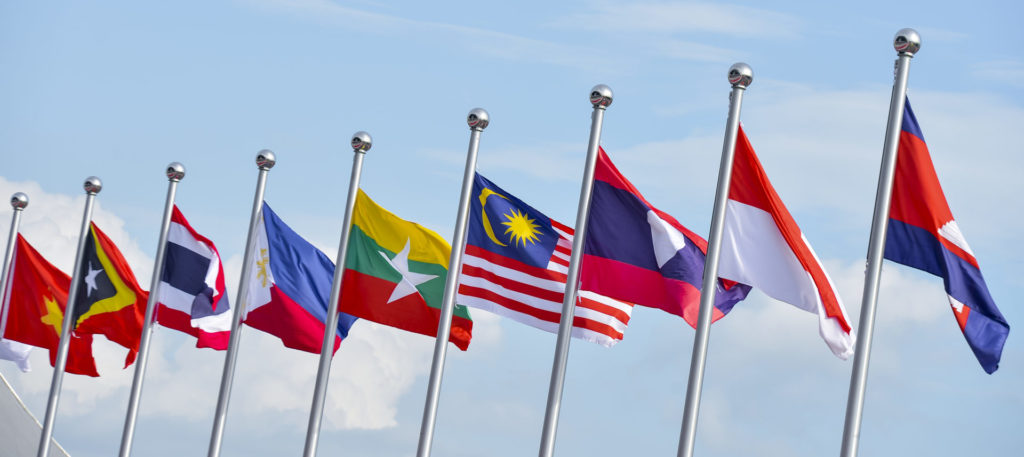The Rise of Global Sourcing Hubs in Singapore
In recent years our Singapore Procurement & Sourcing market report, has often mentioned the decline in the number and size of global and regionally centralised corporate procurement hubs, which previously had been positioned locally to strategically procure raw materials, goods, and services on a significant scale.
There were several reasons companies set up these strategic procurement centres in Singapore in the first place but over recent years, many have slowly scaled down, or have either shifted to a more decentralized structure, or returned home to their corporate headquarters. These businesses were typically characterized as large-scale multinational manufacturing companies, commodity producers or services organisations. With this manner of procurement, Singapore is now most often viewed as a centre-led location with resources being deployed to lower cost locations or proximity to their operations, markets, or global corporate headquarters elsewhere.
The current trend observed however is the rise of global sourcing hubs in Singapore, the nature of these organisations and their mission differs to that of their corporate and strategic procurement counterparts that have more traditionally been positioned locally.
The new breed of companies that are relocating this function to Singapore are typically those that are purchasing goods for direct re-sale – for example notable retailers, emerging e-Commerce players and branded consumer durable, apparel, appliance, and electronics companies that increasingly manufacture in South East Asia. With this, there is often also a close coupling with management of outsourced manufacturing partners and building a presence here with a robust product management and innovation, quality, commercial and supply chain agenda to commercially service regional clients, as well as centrally manage global supply.
From an Asia-Pacific perspective, these are very much the type of operations that are typically in locations such as Shanghai, Hong Kong and Shenzhen, where sourcing has been heavily focussed on originating supply from China and north Asia.
The reasons for this trend are as follows:
Our clients are citing several reasons to change to sourcing of goods for re-sale and for choosing Singapore as the preferred destination. Typical reasons include the business friendly, globally connected nature, and culture of strong governance in Singapore. In respect specifically to the nature of sourcing is the proximity to Southeast Asian countries and the lower cost manufacturing locations in the region, as well as many citing the rising cost of doing business in China.
Additionally, we are observing the China +1 strategy that’s impacting company’s decisions concerning their supply chains and sourcing hubs. Whilst geo-political reasons are not overtly being cited by business leaders, it is reasonable to assume from discussions we have had, there is growing anxiety related to the risk of being concentrated in a single location in case of a trade war – sentiments that have no doubt been compounded by the pandemic.
The nature of these team builds is seemingly more gradual than a wholesale remit to build large teams in a short period of time, which had been typical historically for strategic category management teams in corporate procurement. The hiring intent though is very clear to see with well-known and branded companies acquiring office space that would in some cases presently only be at 5-10% capacity should all current Singapore-based employees be in the office.
This begs the question: would one replace the other?
In theory, with the decline of corporate procurement presence and the evident rise of goods for re-sale sourcing in Singapore, one might assume that one would be replacing the other from an employment market and jobs perspective, particularly for companies that view skill sets as transferable. However, in practice this is rarely the case as the nature of the jobs are different, and typically companies like to hire talent with as much like for like experience as possible. In the case of goods for re-sale sourcing this is exampled as knowledge of a specific category such as apparel, textiles, consumer durables, appliances, or consumer electronics.
Therefore, what are the skills required?
Having observed that the nature of the jobs and the mission of the operations are quite different, the skills and experience in demand we are observing are to have an implicit understanding of technical product briefs that can be relayed to contract manufacturers and sourcing partners. Similarly experience in, and knowledge of product design, with a network of category specific sourcing partners is advantageous. Additional skills required are commercial expertise in working with a range of suppliers across multiple countries as well as ability to navigate commercial agreements coupled with supply chain optimisation.
Sourcing professionals in these roles typically also work very closely or are intertwined with the commercial arms of the business globally to understand consumer behaviours and future trends, and often have KPIs around product sales and/or category growth.
In summary, businesses moving to Singapore with this function will certainly encounter a skill-short market in the like for like roles, but equally will be welcomed by a talent-rich and well-educated market of procurement professionals with strong transferable skills. This means that organizations which have the capacity and resources to train and upskill on industry specifics, will most certainly thrive.
Here at Connexus Global, we have been facilitating the entry of numerous businesses to the Singapore market – and it’s been especially rewarding to partner with companies that are attracting and investing in developing young talent to this growth area, as well as adopting a diverse, open-minded approach to hiring when faced with skill shortages.
We expect this exciting and dynamic vertical to be a key pillar of our Singapore office in the coming years and we eagerly anticipate supporting these characterised companies to identify and hire the best talent in the market.
Should the topics featured in this article be pertinent to you or your business, and certainly from a talent and skills perspective, feel free to contact me for an more in-depth discussion.










